
Electric vehicles (EVs), Jaguar Land Rover (JLR) is shifting its focus towards plug-in hybrid electric vehicles (PHEVs).
In response to a global decrease in the demand for electric vehicles (EVs), Jaguar Land Rover (JLR) is shifting its focus towards plug-in hybrid electric vehicles (PHEVs). This change in strategy comes from initial plans to launch six new EVs by 2026 under the Land Rover brand, an initiative announced in 2021.
 Despite its promise to fully electrify the Jaguar brand from 2025 onwards, the company has had to adjust these plans due to ongoing market realities. Instead, the company will prioritize the introduction of new PHEV models.
This decision comes in light of the company's recent performance in the European market. Sales of JLR's PHEV models surged by 68% to 45,224 units in 2023 in Europe, indicating a stronger demand for PHEV compared to the slowing growth in EV sales.
Despite its promise to fully electrify the Jaguar brand from 2025 onwards, the company has had to adjust these plans due to ongoing market realities. Instead, the company will prioritize the introduction of new PHEV models.
This decision comes in light of the company's recent performance in the European market. Sales of JLR's PHEV models surged by 68% to 45,224 units in 2023 in Europe, indicating a stronger demand for PHEV compared to the slowing growth in EV sales.
 Adrian Mardell, JLR's CEO, noted that the broader transition to battery electric vehicles (BEVs) seems to be losing momentum, giving surprising acceptance to PHEVs. As a direct response, JLR is working towards making more PHEVs available in the market.
As a result, Land Rover has scaled back on its EV ambitions, intending to launch just one new EV by 2026. This EV will be an all-electric Range Rover, which has already generated over 16,000 bookings. Following this will be the all-electric version of the Range Rover Sport, with both vehicles built on JLR's Modular Longitudinal Architecture (MLA) platform.
Adrian Mardell, JLR's CEO, noted that the broader transition to battery electric vehicles (BEVs) seems to be losing momentum, giving surprising acceptance to PHEVs. As a direct response, JLR is working towards making more PHEVs available in the market.
As a result, Land Rover has scaled back on its EV ambitions, intending to launch just one new EV by 2026. This EV will be an all-electric Range Rover, which has already generated over 16,000 bookings. Following this will be the all-electric version of the Range Rover Sport, with both vehicles built on JLR's Modular Longitudinal Architecture (MLA) platform.
 Land Rover's lineup will also include two smaller EVs, which will be based on the EMA platform and will likely be successors to the Velar and Evoque models. There’s also an EV version of the Defender model that will be released at a later date.
Jaguar, on the other hand, will stick with its plan to become an electric-only brand, beginning with an all-electric, four-door GT that will go up against the Porsche Panamera. This will be succeeded by a smaller EV and all existing internal combustion engine (ICE) models including the F-Pace and E-Pace will be phased out after their current generation.
Land Rover's lineup will also include two smaller EVs, which will be based on the EMA platform and will likely be successors to the Velar and Evoque models. There’s also an EV version of the Defender model that will be released at a later date.
Jaguar, on the other hand, will stick with its plan to become an electric-only brand, beginning with an all-electric, four-door GT that will go up against the Porsche Panamera. This will be succeeded by a smaller EV and all existing internal combustion engine (ICE) models including the F-Pace and E-Pace will be phased out after their current generation.
 Despite these changes, JLR remains committed to having 60% of its sales come from EVs by 2030, and to increase this to 100% by 2036.
Despite these changes, JLR remains committed to having 60% of its sales come from EVs by 2030, and to increase this to 100% by 2036.

Yamaha MT‑15 Version 2.0 Launches in India — TFT, Nav & Style Upgrades
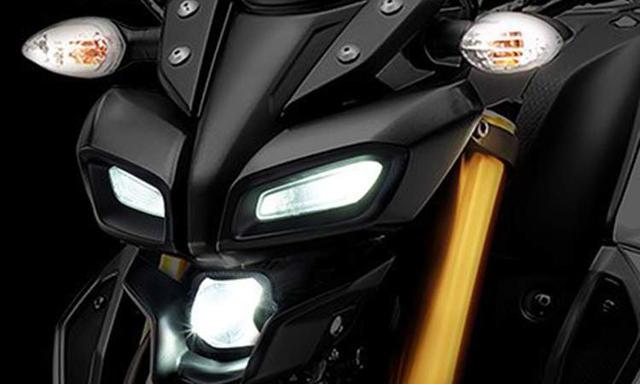 Yamaha Motor India has unveiled the 2025 MT‑15 Version 2.0, bringing a host of tech updates and refreshed styling to its popular streetfighter. The standard (STD) variant is priced at ₹1.69 lakh, while the Deluxe (DLX) costs ₹1.80 lakh (ex-showroom)
Display & Connectivity Enhancements
The DLX variant features a new 5-inch full-colour TFT display, replacing the older LCD. It integrates smartphone-based turn-by-turn navigation, Bluetooth call alerts, ride stats, parking location, maintenance reminders, malfunction alerts, and even a rider ranking system via Yamaha’s Y‑Connect platform
Connectivity extends to basic notifications on the instrument cluster, elevating the experience in this segment.
Chassis, Suspension & Performance
Yamaha Motor India has unveiled the 2025 MT‑15 Version 2.0, bringing a host of tech updates and refreshed styling to its popular streetfighter. The standard (STD) variant is priced at ₹1.69 lakh, while the Deluxe (DLX) costs ₹1.80 lakh (ex-showroom)
Display & Connectivity Enhancements
The DLX variant features a new 5-inch full-colour TFT display, replacing the older LCD. It integrates smartphone-based turn-by-turn navigation, Bluetooth call alerts, ride stats, parking location, maintenance reminders, malfunction alerts, and even a rider ranking system via Yamaha’s Y‑Connect platform
Connectivity extends to basic notifications on the instrument cluster, elevating the experience in this segment.
Chassis, Suspension & Performance
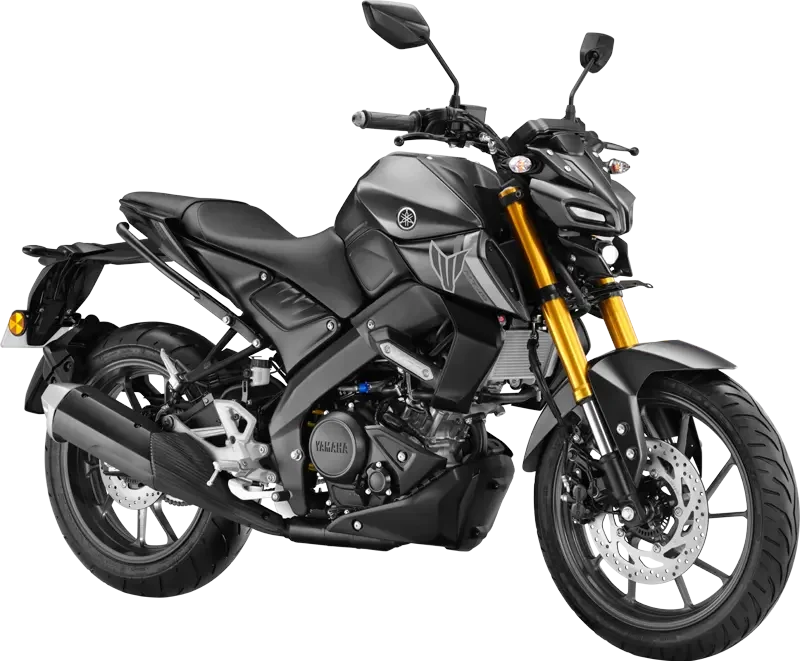 Powered by an engineered 155 cc liquid-cooled engine with Variable Valve Actuation (VVA), the MT‑15 delivers 18.4 PS at 10,000 rpm and 14.1 Nm at 7,500 rpm, paired with a 6-speed gearbox and assist-and-slipper clutch
Upgrades include 37 mm USD front forks, a revised monoshock with seven-step preload, and a beefed-up aluminium swingarm, improving handling and ride comfort
Braking setup features a 282 mm front disc, dual-channel ABS in DLX, and traction control, both valuable additions seldom seen in this class until now
Design & Ergonomics Refresh
The MT‑15 Version 2 retains its aggressive Deltabox-framed streetfighter stance and sharp styling, now offered in new colour options such as Metallic Silver Cyan, Ice Storm, and Vivid Violet Metallic, alongside Metallic Black
Weighing approximately 141 kg, it offers a comfortable upright riding posture, making it agile for urban commuting and spirited weekend rides
Pricing Table
Powered by an engineered 155 cc liquid-cooled engine with Variable Valve Actuation (VVA), the MT‑15 delivers 18.4 PS at 10,000 rpm and 14.1 Nm at 7,500 rpm, paired with a 6-speed gearbox and assist-and-slipper clutch
Upgrades include 37 mm USD front forks, a revised monoshock with seven-step preload, and a beefed-up aluminium swingarm, improving handling and ride comfort
Braking setup features a 282 mm front disc, dual-channel ABS in DLX, and traction control, both valuable additions seldom seen in this class until now
Design & Ergonomics Refresh
The MT‑15 Version 2 retains its aggressive Deltabox-framed streetfighter stance and sharp styling, now offered in new colour options such as Metallic Silver Cyan, Ice Storm, and Vivid Violet Metallic, alongside Metallic Black
Weighing approximately 141 kg, it offers a comfortable upright riding posture, making it agile for urban commuting and spirited weekend rides
Pricing Table
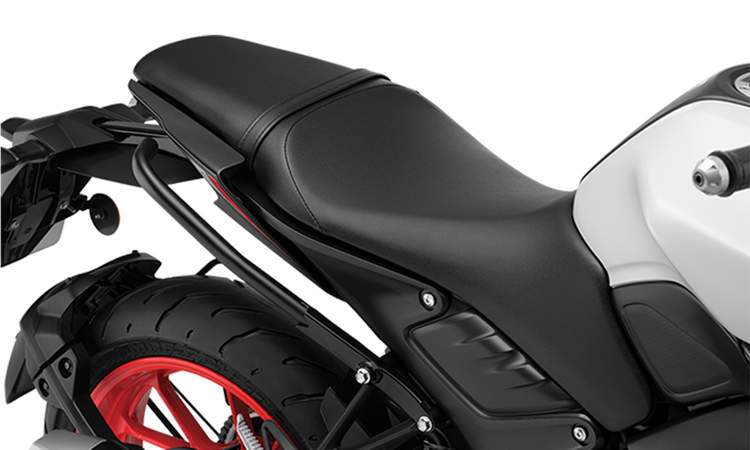
 Who Should Consider the MT‑15 V2?
Ideal for riders craving sporty streetfighter aesthetics, accessible performance, and modern connectivity in the 150cc category.
Major upgrades like TFT navigation, dual-channel ABS, and traction control level it up against rivals such as Bajaj Pulsar NS200 and TVS Apache RTR 200 4V
Final Outlook
The Yamaha MT‑15 Version 2.0 successfully elevates a proven formula by incorporating essential tech and ride-enhancing features. Priced competitively at ₹1.69–1.80 lakh, it now offers segment-leading functionality for modern riders prioritizing style, capability, and digital integrations.
Who Should Consider the MT‑15 V2?
Ideal for riders craving sporty streetfighter aesthetics, accessible performance, and modern connectivity in the 150cc category.
Major upgrades like TFT navigation, dual-channel ABS, and traction control level it up against rivals such as Bajaj Pulsar NS200 and TVS Apache RTR 200 4V
Final Outlook
The Yamaha MT‑15 Version 2.0 successfully elevates a proven formula by incorporating essential tech and ride-enhancing features. Priced competitively at ₹1.69–1.80 lakh, it now offers segment-leading functionality for modern riders prioritizing style, capability, and digital integrations.
Stay tuned to CarTopNews for our upcoming first ride review, variant comparison, and insight into Yamaha’s future plans for the MT range.

Honda CB125 Hornet Debuts in India at ₹1.12 Lakh — Bookings Open, Deliveries from Mid-August
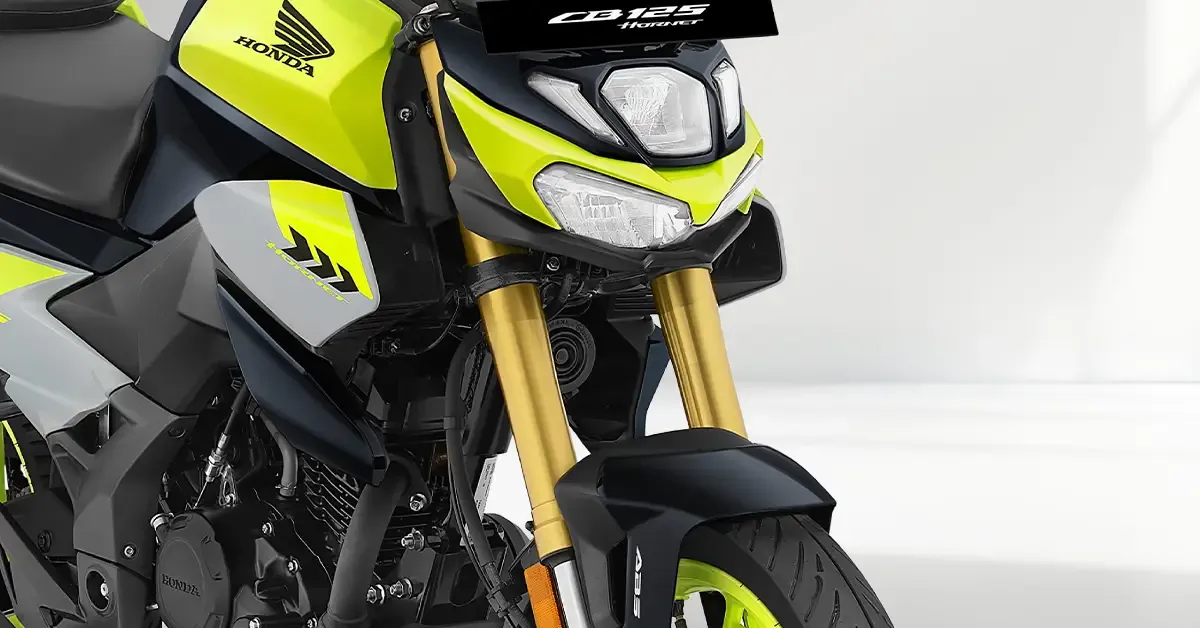 Honda Motorcycle & Scooter India has officially launched the CB125 Hornet in India at an introductory price of ₹1.12 lakh (ex-showroom, Gurugram), with deliveries scheduled to begin from mid‑August 2025 in a phased rollout. Bookings opened on 1 August 2025
Engine & Performance: Quickest in Class
Equipped with a 123.94 cc single-cylinder engine, it delivers ~10.99 bhp at 7,500 rpm and 11.2 Nm torque at 6,000 rpm, paired with a 5-speed gearbox
Honda claims a sprint of 0–60 km/h in 5.4 seconds, making it one of the fastest bikes in its segment
Features: Upside-Down Forks & Smart TFT Console
Honda Motorcycle & Scooter India has officially launched the CB125 Hornet in India at an introductory price of ₹1.12 lakh (ex-showroom, Gurugram), with deliveries scheduled to begin from mid‑August 2025 in a phased rollout. Bookings opened on 1 August 2025
Engine & Performance: Quickest in Class
Equipped with a 123.94 cc single-cylinder engine, it delivers ~10.99 bhp at 7,500 rpm and 11.2 Nm torque at 6,000 rpm, paired with a 5-speed gearbox
Honda claims a sprint of 0–60 km/h in 5.4 seconds, making it one of the fastest bikes in its segment
Features: Upside-Down Forks & Smart TFT Console
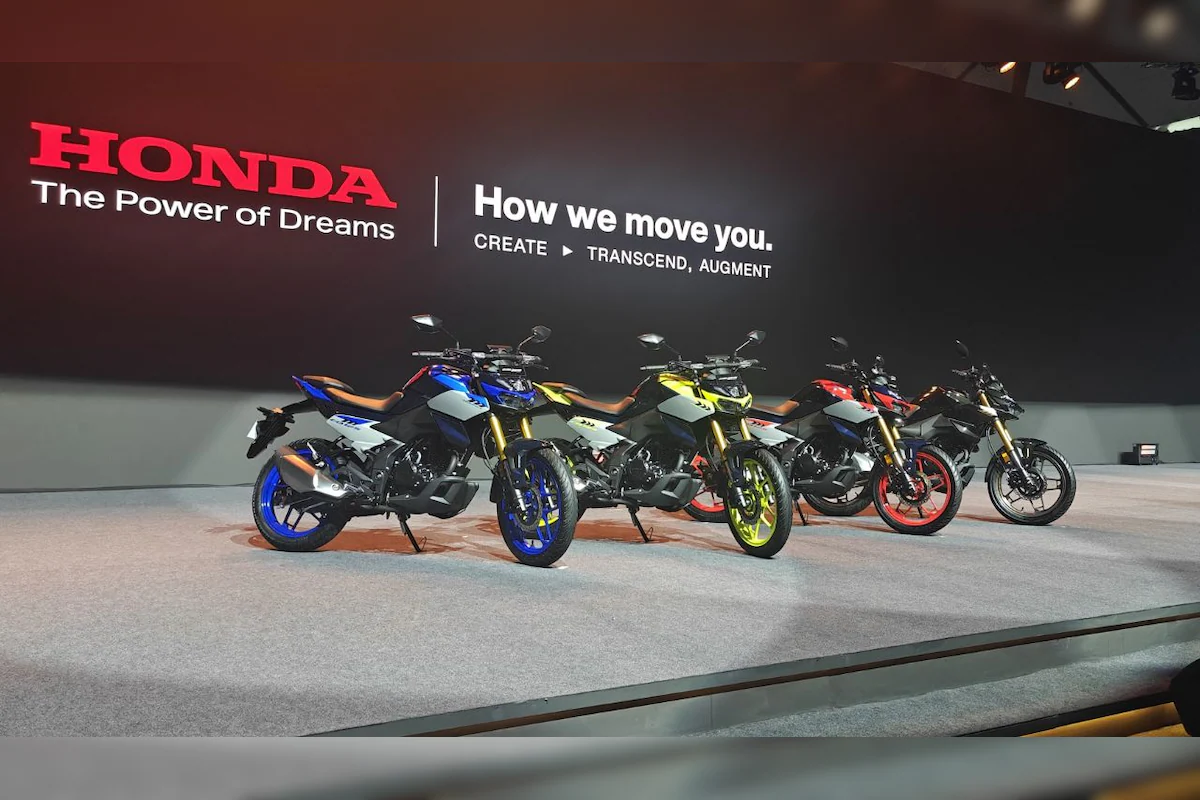 It sports gold-finished USD front forks (a first in this category), with a preload-adjustable rear monoshock
Braking includes a 240 mm petal disc (front) and 130 mm drum (rear), supported by single-channel ABS
The 4.2-inch TFT display supports Bluetooth connectivity and turn-by-turn navigation via Honda’s RoadSync app. Also includes a USB Type‑C charging port, engine stop switch, and side-stand engine cut-off
Styling & Ergonomics: Sporty with Attitude
The CB125 Hornet features LED lighting throughout, including a twin-LED headlamp, LED DRLs, and high-mounted LED turn indicators
It weighs just 124 kg, making it one of the lightest bikes in the sporty 125cc category
Available in vibrant colour options including Red, Fluorescent Yellow, Blue, and Black, each with colour-matched alloy wheels
Rivals & Market Landscape
It sports gold-finished USD front forks (a first in this category), with a preload-adjustable rear monoshock
Braking includes a 240 mm petal disc (front) and 130 mm drum (rear), supported by single-channel ABS
The 4.2-inch TFT display supports Bluetooth connectivity and turn-by-turn navigation via Honda’s RoadSync app. Also includes a USB Type‑C charging port, engine stop switch, and side-stand engine cut-off
Styling & Ergonomics: Sporty with Attitude
The CB125 Hornet features LED lighting throughout, including a twin-LED headlamp, LED DRLs, and high-mounted LED turn indicators
It weighs just 124 kg, making it one of the lightest bikes in the sporty 125cc category
Available in vibrant colour options including Red, Fluorescent Yellow, Blue, and Black, each with colour-matched alloy wheels
Rivals & Market Landscape
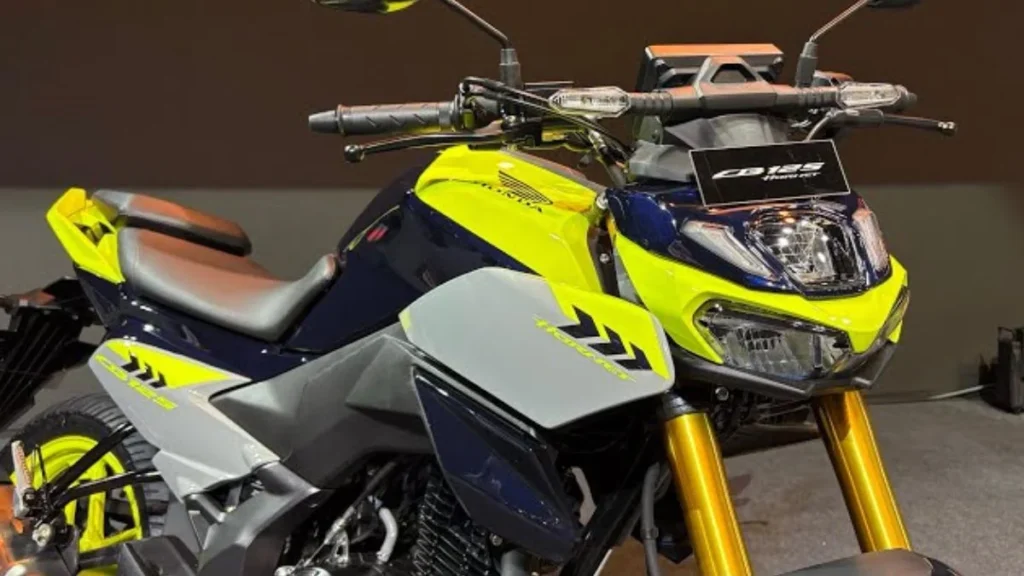 The CB125 Hornet directly competes with segment leaders like the TVS Raider 125, Hero Xtreme 125R, and Bajaj Pulsar N125, albeit at a higher price point:
The CB125 Hornet directly competes with segment leaders like the TVS Raider 125, Hero Xtreme 125R, and Bajaj Pulsar N125, albeit at a higher price point:
 Honda positions the Hornet as a youth-focused offering with premium hardware and streetfighter styling, clearly targeting buyers prioritizing flair and technology. Analysts caution the premium pricing may limit broad segment adoption without sustained value perception
Key Takeaways: Who Should Think About the Hornet?
Ideal for riders seeking aggressive styling, modern tech, and distinctiveness in the 125cc category.
Offers segment-first upside-down forks, a clear differentiator.
Delivers performance and features that justify the premium—provided buyers value riding experience over cost.
Final Verdict for CarTopNews
The Honda CB125 Hornet introduces a fresh edge to the 125cc sporty segment in India, blending advanced features like USD suspension and a connected TFT dash with Honda reliability. While it may be pricier than direct rivals, for youth-oriented riders chasing performance, tech, and distinctive styling, it's clearly worth a look.
Honda positions the Hornet as a youth-focused offering with premium hardware and streetfighter styling, clearly targeting buyers prioritizing flair and technology. Analysts caution the premium pricing may limit broad segment adoption without sustained value perception
Key Takeaways: Who Should Think About the Hornet?
Ideal for riders seeking aggressive styling, modern tech, and distinctiveness in the 125cc category.
Offers segment-first upside-down forks, a clear differentiator.
Delivers performance and features that justify the premium—provided buyers value riding experience over cost.
Final Verdict for CarTopNews
The Honda CB125 Hornet introduces a fresh edge to the 125cc sporty segment in India, blending advanced features like USD suspension and a connected TFT dash with Honda reliability. While it may be pricier than direct rivals, for youth-oriented riders chasing performance, tech, and distinctive styling, it's clearly worth a look.

Volvo XC60 2025 Facelift Debuts in India — Key Upgrades & Pricing
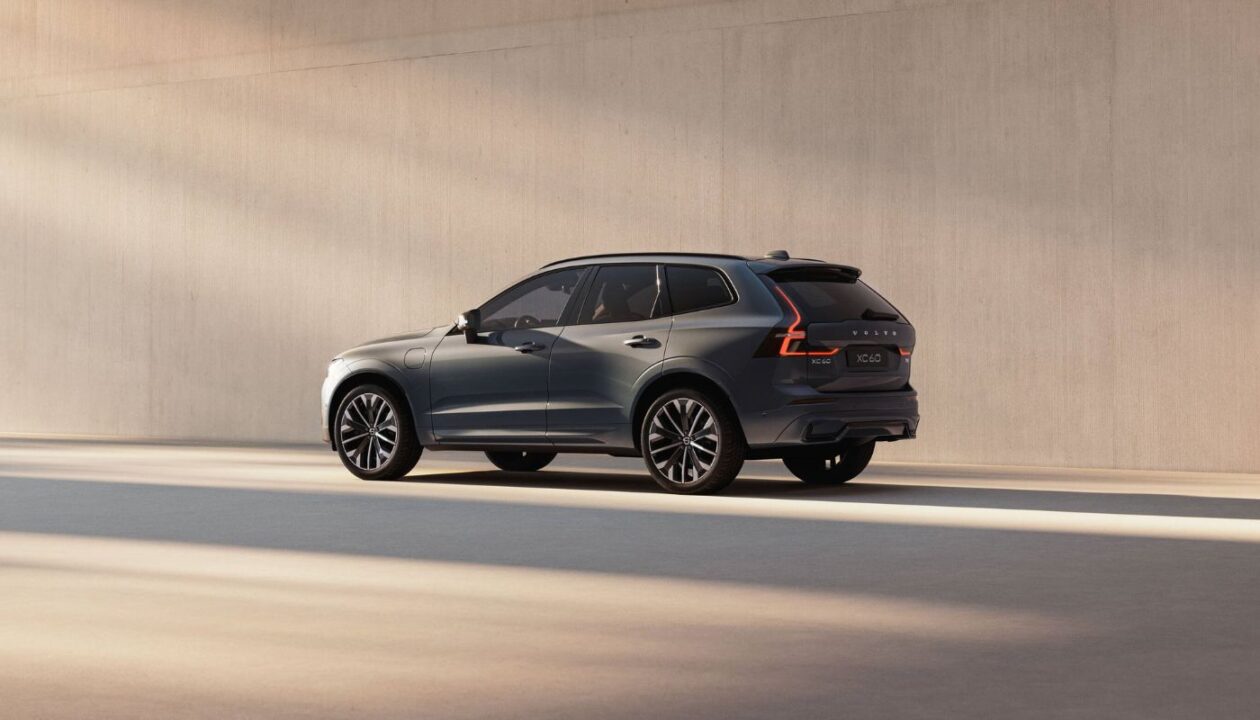 Volvo has officially launched the 2025 XC60 facelift in India, priced at ₹71.90 lakh (ex-showroom) for the fully loaded variant, marking a modest premium over the previous model's ₹70.75 lakh launch price. This SUV remains Volvo's global bestseller with over 2.7 million units sold so far
Exterior Highlights: Refinement, Not Revolution
New diagonal‑slat grille inspired by the XC90 facelift.
Redesigned bumpers, fresh dual‑tone alloy wheels, and smoked LED tail-lights for a subtle yet upscale update.
Additional new paint shades expected, including Forest Lake, Aurora Silver, and possibly Mulberry Red
The visual tweaks retain the XC60’s signature Scandinavian design with a polished, contemporary flair.
Interior Tech: 11.2″ Touchscreen & Premium Enhancements
Volvo has officially launched the 2025 XC60 facelift in India, priced at ₹71.90 lakh (ex-showroom) for the fully loaded variant, marking a modest premium over the previous model's ₹70.75 lakh launch price. This SUV remains Volvo's global bestseller with over 2.7 million units sold so far
Exterior Highlights: Refinement, Not Revolution
New diagonal‑slat grille inspired by the XC90 facelift.
Redesigned bumpers, fresh dual‑tone alloy wheels, and smoked LED tail-lights for a subtle yet upscale update.
Additional new paint shades expected, including Forest Lake, Aurora Silver, and possibly Mulberry Red
The visual tweaks retain the XC60’s signature Scandinavian design with a polished, contemporary flair.
Interior Tech: 11.2″ Touchscreen & Premium Enhancements
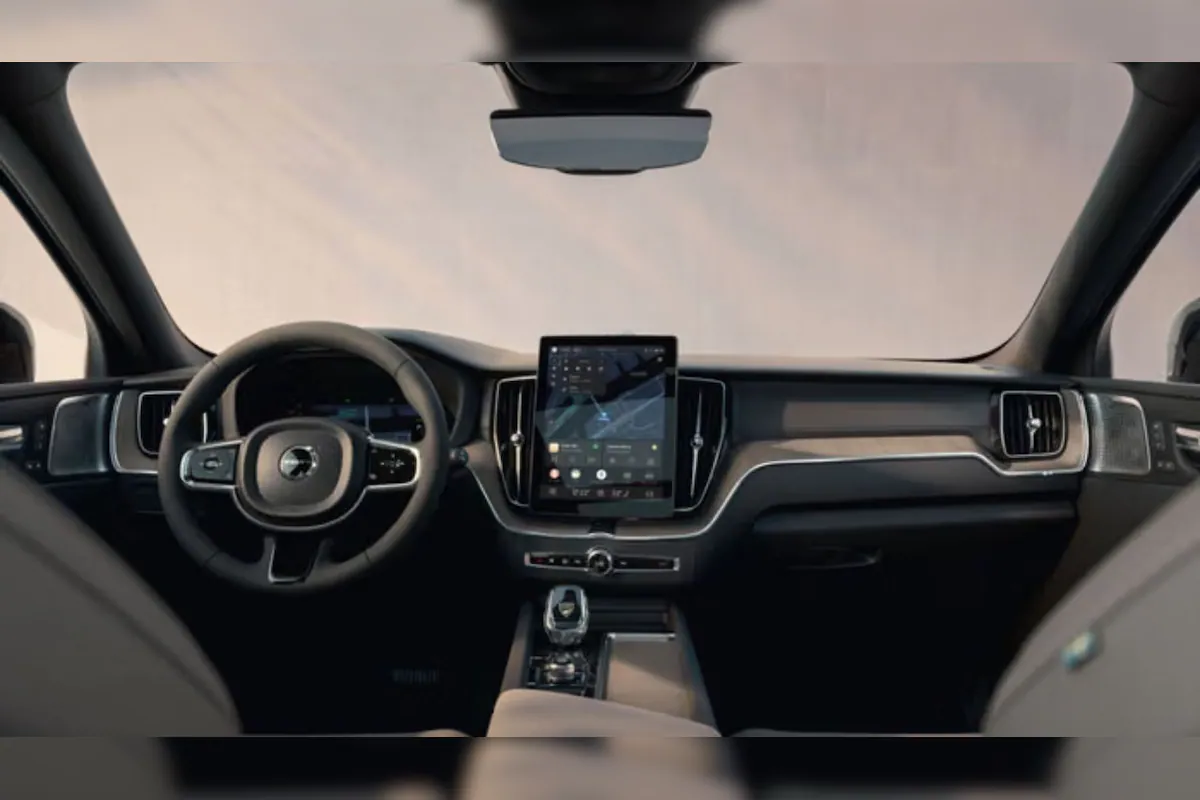 The standout feature is the 11.2‑inch freestanding touchscreen infotainment powered by Qualcomm’s Snapdragon Cockpit platform, offering faster graphics, higher pixel density, and OTA updates, along with built-in Google services
Interior enhancements include quilted Nordico or Navy Herringbone accents, upgraded speaker mesh, ambient lighting, and improved wireless charging setup
Premium comfort continues with power-adjustable seats with massage function, panoramic sunroof, four-zone climate control, 12.3-inch digital cluster, and a Bowers & Wilkins sound system
Powertrain & Mechanicals: Familiar and Refined
The facelift retains the proven B5 AWD 48V mild-hybrid setup, featuring a 2.0 litre turbo-petrol engine producing around 247 bhp and 360 Nm, paired with an 8-speed torque converter automatic and standard all-wheel drive
Price & Market Positioning
Launch Price: ₹71.90 lakh (ex-showroom), marginally above the outgoing model’s ₹70.75 lakh base price
Competition: Positioned against premium rivals like the Mercedes-Benz GLC (₹78L+), BMW X3 (₹75L+), and Audi Q5 (₹67L onwards)
What This Facelift Means for Volvo India
The standout feature is the 11.2‑inch freestanding touchscreen infotainment powered by Qualcomm’s Snapdragon Cockpit platform, offering faster graphics, higher pixel density, and OTA updates, along with built-in Google services
Interior enhancements include quilted Nordico or Navy Herringbone accents, upgraded speaker mesh, ambient lighting, and improved wireless charging setup
Premium comfort continues with power-adjustable seats with massage function, panoramic sunroof, four-zone climate control, 12.3-inch digital cluster, and a Bowers & Wilkins sound system
Powertrain & Mechanicals: Familiar and Refined
The facelift retains the proven B5 AWD 48V mild-hybrid setup, featuring a 2.0 litre turbo-petrol engine producing around 247 bhp and 360 Nm, paired with an 8-speed torque converter automatic and standard all-wheel drive
Price & Market Positioning
Launch Price: ₹71.90 lakh (ex-showroom), marginally above the outgoing model’s ₹70.75 lakh base price
Competition: Positioned against premium rivals like the Mercedes-Benz GLC (₹78L+), BMW X3 (₹75L+), and Audi Q5 (₹67L onwards)
What This Facelift Means for Volvo India
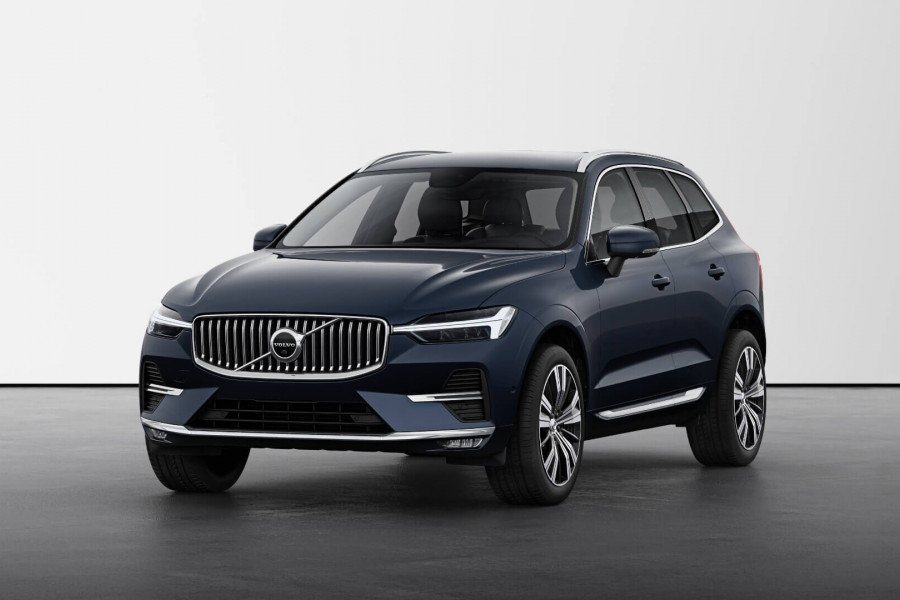 Solidifies the XC60’s status as Volvo’s most globally successful model, with incremental enhancements rather than radical change
Enhances infotainment and cabin luxury to remain competitive in the fast-evolving mid-size luxury SUV segment.
Reassures buyers with Volvo’s reputation for safety, reliability, and understated elegance.
Final Verdict for CarTopNews
The 2025 Volvo XC60 facelift succeeds by refining what already works—offering incremental styling improvements, best-in-class infotainment tech, and maintained driving dynamics under the hood. With its updated value positioning at ₹71.90 lakh and premium feature set, it stays relevant against luxury rivals and sets a higher benchmark in its class.
Stay tuned to CarTopNews for detailed reviews, first drives, on-road price updates, and comparisons with Mercedes GLC, BMW X3, and Audi Q5.
Solidifies the XC60’s status as Volvo’s most globally successful model, with incremental enhancements rather than radical change
Enhances infotainment and cabin luxury to remain competitive in the fast-evolving mid-size luxury SUV segment.
Reassures buyers with Volvo’s reputation for safety, reliability, and understated elegance.
Final Verdict for CarTopNews
The 2025 Volvo XC60 facelift succeeds by refining what already works—offering incremental styling improvements, best-in-class infotainment tech, and maintained driving dynamics under the hood. With its updated value positioning at ₹71.90 lakh and premium feature set, it stays relevant against luxury rivals and sets a higher benchmark in its class.
Stay tuned to CarTopNews for detailed reviews, first drives, on-road price updates, and comparisons with Mercedes GLC, BMW X3, and Audi Q5.

Skoda Vision O Concept Preview: A Modern Estate Car for the Electric Future
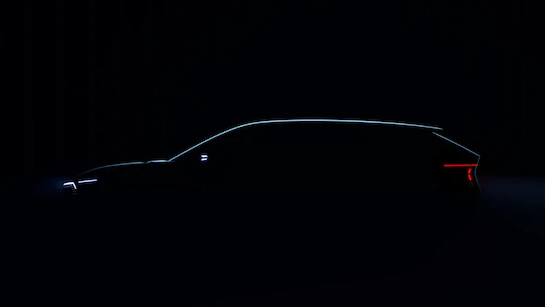 Skoda has offered the first look at its Vision O concept, a sleek estate car study that previews the brand’s upcoming design language for electric wagons. The concept will make its world premiere at the Munich Motor Show in September 2025
Bold Modern Solid Styling for the Next Generation Estate
Key design features of Vision O include:
Steeply raked windscreen and smoothly tapering roofline for an aerodynamic estate silhouette
Crisp LED headlamp and tail-light graphics, minimalist surfaces, and refined proportions
Body sculpting that blends functionality with Skoda’s signature strong lines—echoing estates like the Superb Combi and Octavia Combi
The Vision O signifies a major evolution in Skoda’s “Modern Solid” design philosophy, balancing elegant simplicity with durability and efficiency
Sustainability & Circular Design Philosophy
The concept’s name—Vision O—reflects a sustainable philosophy centered on circularity, emphasizing recyclable materials and a lifecycle-focused approach to car design. Skoda aims to reduce environmental impact and embed reuse throughout the vehicle’s development
Legacy Meets Innovation: Skoda’s Estate Heritage
With over three million Octavia Estates sold across four generations since 1998, Skoda’s reputation in estate cars is long established. The Vision O concept pays homage to this history—continuing a lineage that includes models like the L&K 110, time-tested Superb Estate, and historical station wagons such as the 1101 Tudor and 1201/1202 series
Platform & Future Outlook
Skoda has offered the first look at its Vision O concept, a sleek estate car study that previews the brand’s upcoming design language for electric wagons. The concept will make its world premiere at the Munich Motor Show in September 2025
Bold Modern Solid Styling for the Next Generation Estate
Key design features of Vision O include:
Steeply raked windscreen and smoothly tapering roofline for an aerodynamic estate silhouette
Crisp LED headlamp and tail-light graphics, minimalist surfaces, and refined proportions
Body sculpting that blends functionality with Skoda’s signature strong lines—echoing estates like the Superb Combi and Octavia Combi
The Vision O signifies a major evolution in Skoda’s “Modern Solid” design philosophy, balancing elegant simplicity with durability and efficiency
Sustainability & Circular Design Philosophy
The concept’s name—Vision O—reflects a sustainable philosophy centered on circularity, emphasizing recyclable materials and a lifecycle-focused approach to car design. Skoda aims to reduce environmental impact and embed reuse throughout the vehicle’s development
Legacy Meets Innovation: Skoda’s Estate Heritage
With over three million Octavia Estates sold across four generations since 1998, Skoda’s reputation in estate cars is long established. The Vision O concept pays homage to this history—continuing a lineage that includes models like the L&K 110, time-tested Superb Estate, and historical station wagons such as the 1101 Tudor and 1201/1202 series
Platform & Future Outlook
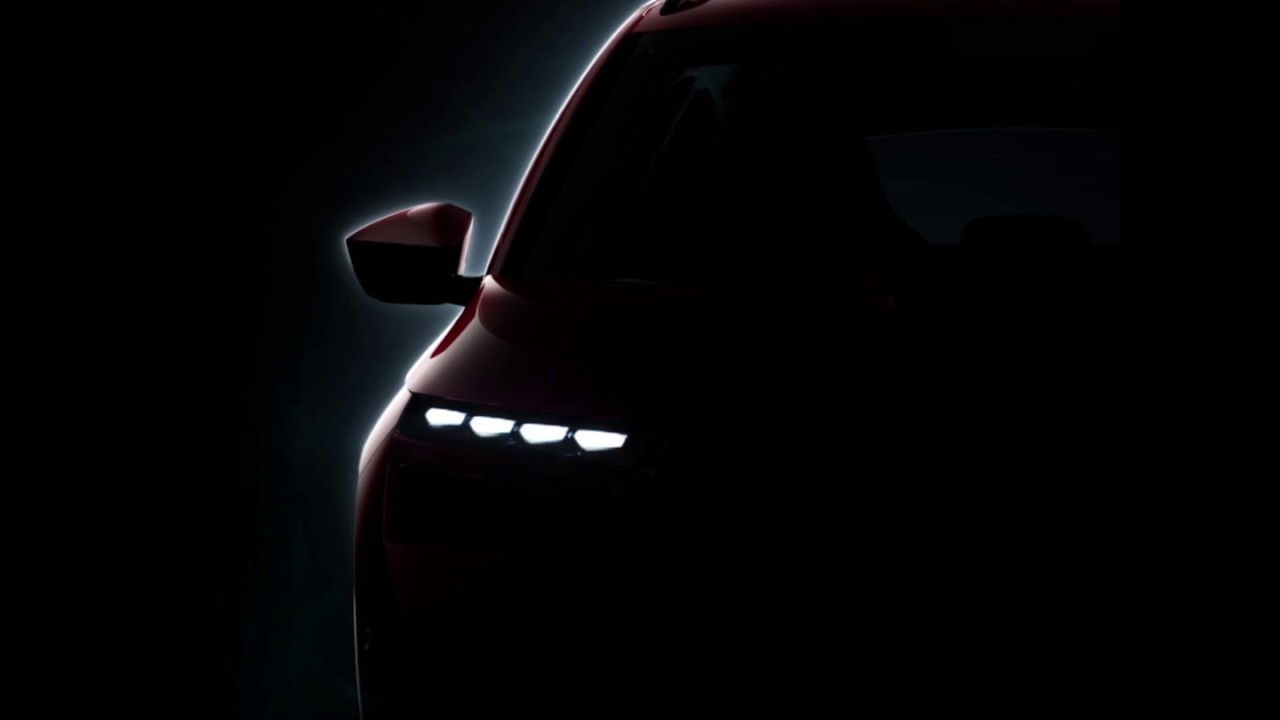 The Vision O is expected to be based on the Volkswagen Group’s SSP (Scalable Systems Platform)—Skoda’s next-gen EV architecture meant for lower ride heights and more estate-type proportions than the current MEB setup
Interior and powertrain details remain under wraps, though Skoda has announced it will reveal additional information closer to the motor show in September
Design Evolution: From Vision O to Vision 7S
Skoda's earlier Vision 7S concept—a three-row SUV revealed in 2022—introduced the same Modern Solid design language and a new vehicle identity, including the updated Skoda lettering logo and minimalist Tech-Deck front face. Vision O adapts that philosophy into the estate form, blending form and function.
Why This Matters
Skoda remains deeply associated with estate body styles; Vision O asserts its intent to continue that legacy into a future of electric mobility.
It underscores Skoda’s commitment to sustainable, design-forward innovation and reinforces its identity in long-distance travel and family-oriented practicality.
Vision O charts the path for future production estates under Skoda’s electric roadmap, delivering both style and purpose.
CarTopNews Verdict
The Skoda Vision O concept is more than just a design exercise—it’s a vision of what estate cars might look like in the electric era. With lightweight aerodynamics, minimalist lines, and a philosophy rooted in circularity, it positions Skoda at the intersection of heritage and futuristic mobility.
The Vision O is expected to be based on the Volkswagen Group’s SSP (Scalable Systems Platform)—Skoda’s next-gen EV architecture meant for lower ride heights and more estate-type proportions than the current MEB setup
Interior and powertrain details remain under wraps, though Skoda has announced it will reveal additional information closer to the motor show in September
Design Evolution: From Vision O to Vision 7S
Skoda's earlier Vision 7S concept—a three-row SUV revealed in 2022—introduced the same Modern Solid design language and a new vehicle identity, including the updated Skoda lettering logo and minimalist Tech-Deck front face. Vision O adapts that philosophy into the estate form, blending form and function.
Why This Matters
Skoda remains deeply associated with estate body styles; Vision O asserts its intent to continue that legacy into a future of electric mobility.
It underscores Skoda’s commitment to sustainable, design-forward innovation and reinforces its identity in long-distance travel and family-oriented practicality.
Vision O charts the path for future production estates under Skoda’s electric roadmap, delivering both style and purpose.
CarTopNews Verdict
The Skoda Vision O concept is more than just a design exercise—it’s a vision of what estate cars might look like in the electric era. With lightweight aerodynamics, minimalist lines, and a philosophy rooted in circularity, it positions Skoda at the intersection of heritage and futuristic mobility.
Stay tuned to CarTopNews for full coverage from the Munich Motor Show, deeper design breakdowns, and how this concept evolves into production estate models in the Skoda lineup.

Triumph Thruxton 400 Café‑Racer Launching in India – 6 August 2025
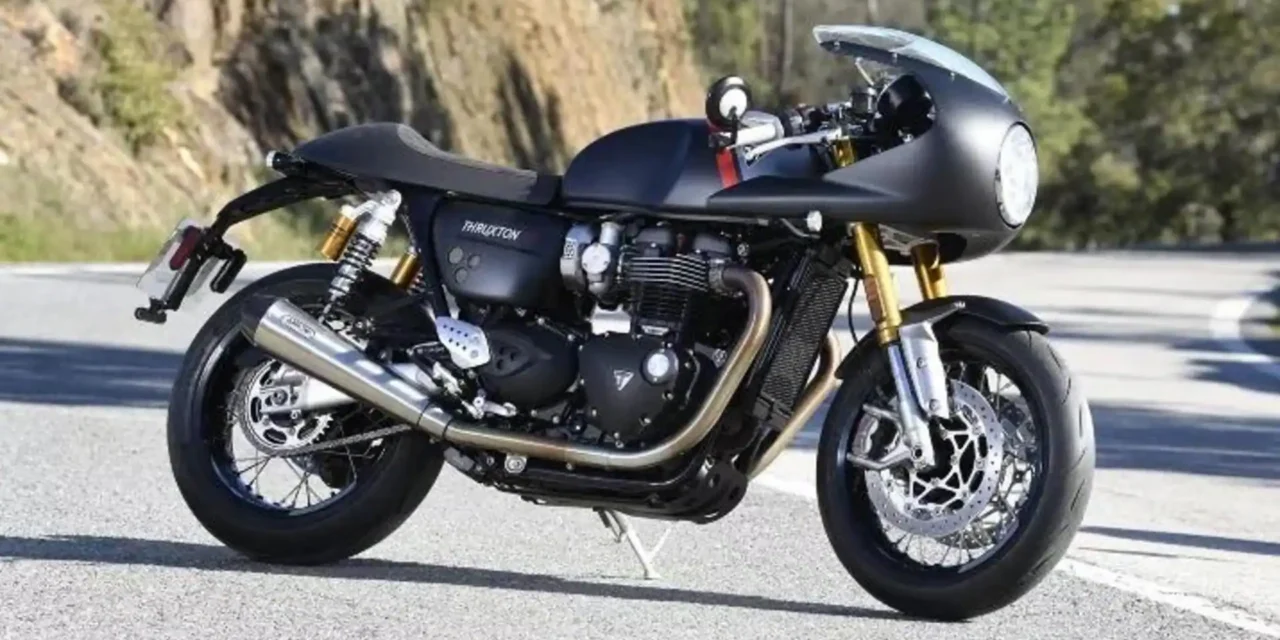 Triumph Motorcycles India has officially confirmed that its highly anticipated Speed 400-based café‑racer will debut on 6 August 2025 This retro-inspired bike, likely named either Thruxton 400 or Speed 400 RS, enters the 400 cc space with a classic racer aesthetic and modern mechanicals.
Design & Styling: Café Racer Comes to Compact 400cc Segment
The new model maintains the simplicity and reliability of the Speed 400 platform, but gets a retro makeover:
Semi-fairing with raked windscreen, round LED headlamp
Clip-on handlebars, bar-end mirrors, and a sporty rear seat cowl
Dual-tone paint, inspired by vintage Triumph café racers
Mounted on a classic spine frame with inverted front forks and monoshock rear suspension
Final production form has been recently seen in Pune during a commercial shoot, confirming its readiness for imminent launch
Engine, Performance & Mechanics
Triumph Motorcycles India has officially confirmed that its highly anticipated Speed 400-based café‑racer will debut on 6 August 2025 This retro-inspired bike, likely named either Thruxton 400 or Speed 400 RS, enters the 400 cc space with a classic racer aesthetic and modern mechanicals.
Design & Styling: Café Racer Comes to Compact 400cc Segment
The new model maintains the simplicity and reliability of the Speed 400 platform, but gets a retro makeover:
Semi-fairing with raked windscreen, round LED headlamp
Clip-on handlebars, bar-end mirrors, and a sporty rear seat cowl
Dual-tone paint, inspired by vintage Triumph café racers
Mounted on a classic spine frame with inverted front forks and monoshock rear suspension
Final production form has been recently seen in Pune during a commercial shoot, confirming its readiness for imminent launch
Engine, Performance & Mechanics
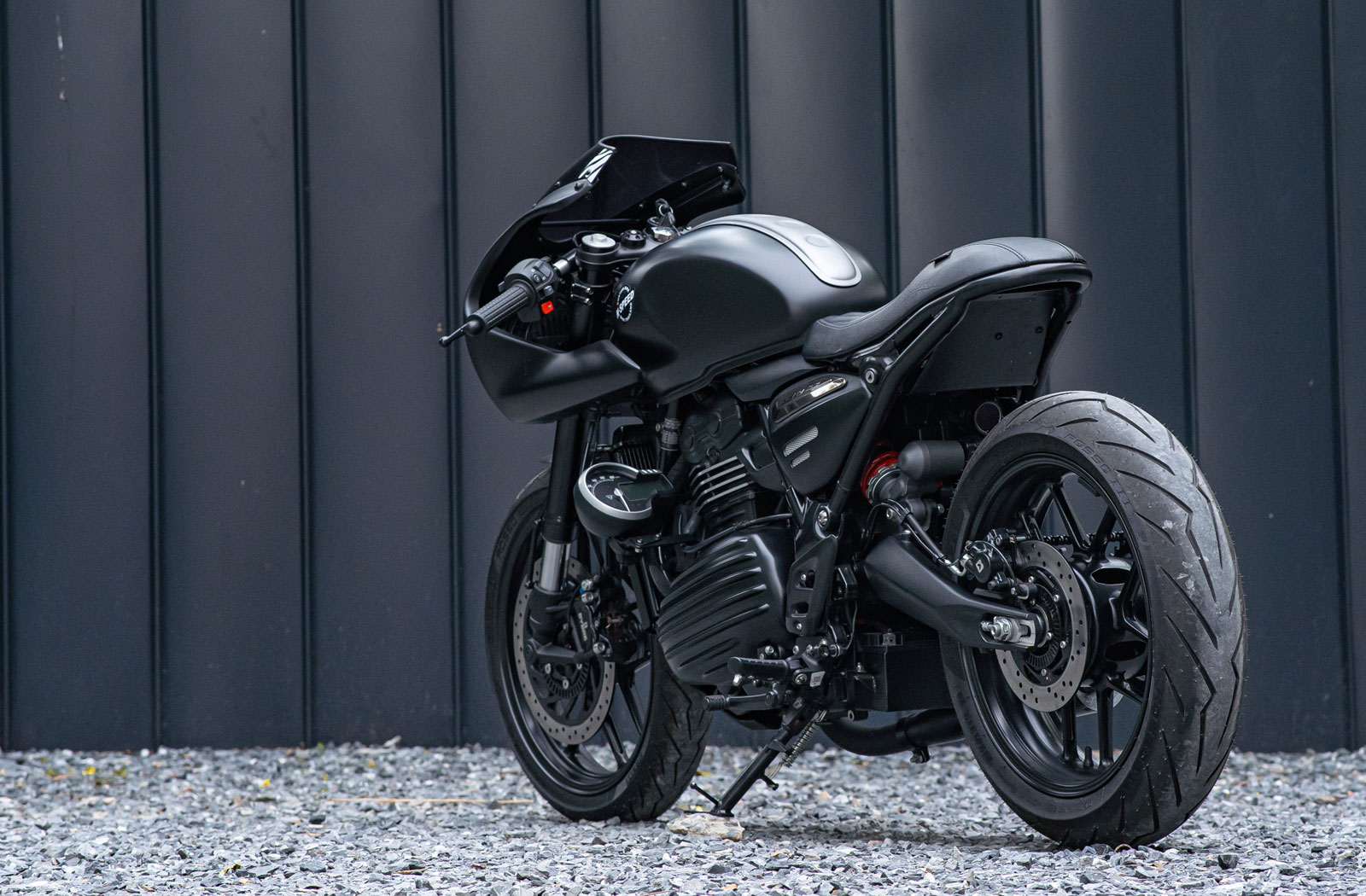 Under the skin remains the familiar 398 cc, liquid-cooled single-cylinder motor delivering:
Power: ~40 hp and Torque: ~37.5 Nm
Transmission: 6-speed gearbox, likely with revised final-drive for sportier response
Expected to share braking setup and chassis with Speed 400 for agility and accessibility
Features & Equipment
While Triumph hasn’t released specs yet, we expect feature parity with Speed 400, including:
Full LED lighting, dual-channel ABS, and traction control
A semi-digital instrument cluster, gear-position indicator, and USB Type‑C charging port
Riding-oriented ergonomics suited for spirited rides
Pricing & Positioning
Estimated price: ₹2.50–2.70 lakh (ex-showroom), positioning it just above the Speed 400
This would likely make it the most affordable café racer in India, undercutting the heavier and pricier Royal Enfield Continental GT 650 (~₹3.3 lakh onwards)
Market Context: Why the Thruxton 400 Matters
Under the skin remains the familiar 398 cc, liquid-cooled single-cylinder motor delivering:
Power: ~40 hp and Torque: ~37.5 Nm
Transmission: 6-speed gearbox, likely with revised final-drive for sportier response
Expected to share braking setup and chassis with Speed 400 for agility and accessibility
Features & Equipment
While Triumph hasn’t released specs yet, we expect feature parity with Speed 400, including:
Full LED lighting, dual-channel ABS, and traction control
A semi-digital instrument cluster, gear-position indicator, and USB Type‑C charging port
Riding-oriented ergonomics suited for spirited rides
Pricing & Positioning
Estimated price: ₹2.50–2.70 lakh (ex-showroom), positioning it just above the Speed 400
This would likely make it the most affordable café racer in India, undercutting the heavier and pricier Royal Enfield Continental GT 650 (~₹3.3 lakh onwards)
Market Context: Why the Thruxton 400 Matters
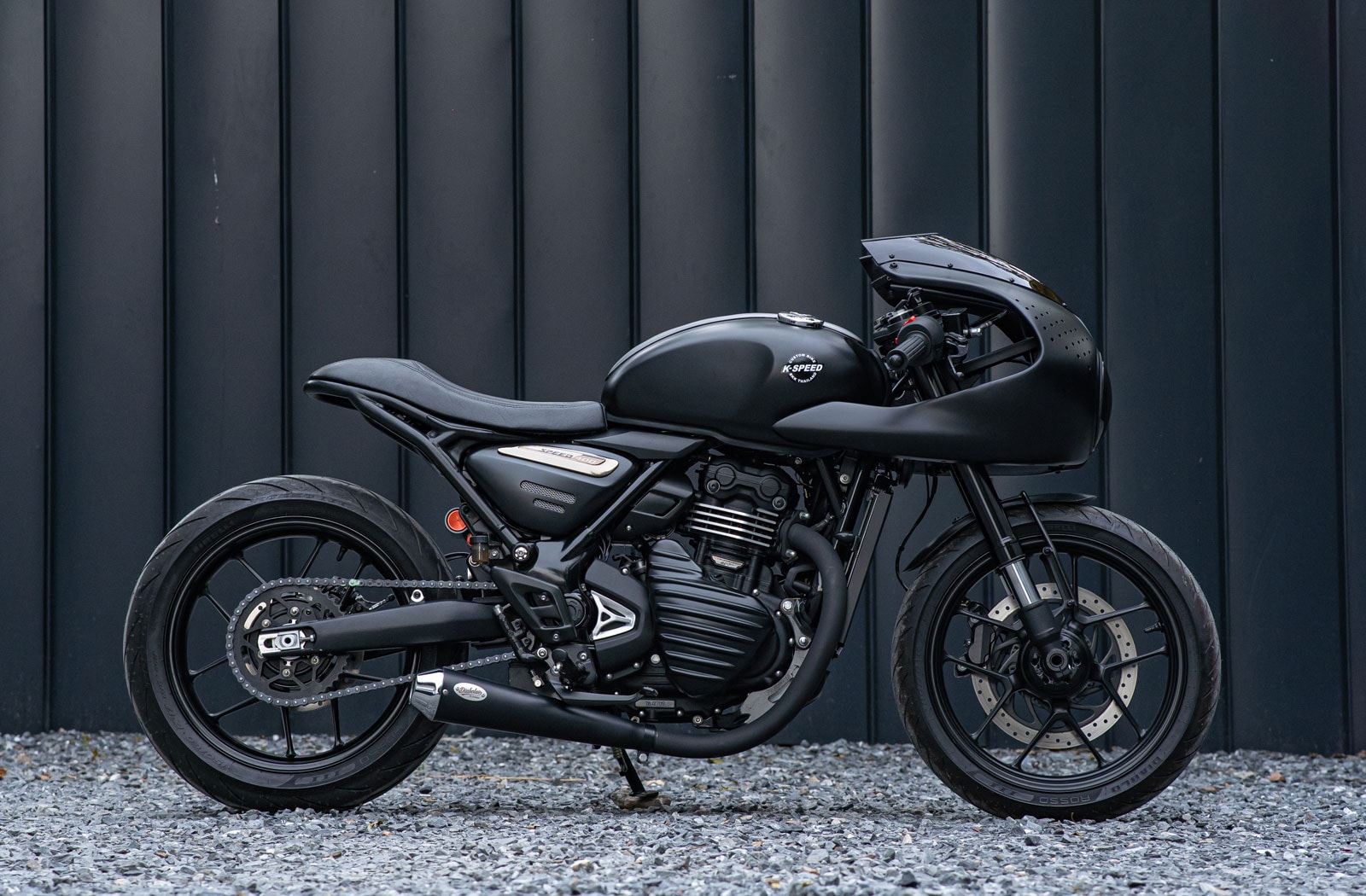 Fills a gap in Triumph’s lineup between retro styling and affordable single-cylinder models
Targets riders seeking café‑racer style at accessible pricing and modern performance
Faces competition mainly from Royal Enfield Continental GT 650, which is pricier and heavier
Launch Details at a Glance
Launch Date: 6 August 2025
Name: Likely Triumph Thruxton 400 (or Speed 400 RS)
Engine: 398 cc | ~40 hp and 37.5 Nm
Estimated Price: ₹2.50–2.70 lakh (ex-showroom)
Highlights: Retro café-racer styling, LED lighting, clip-on bars, traction control
Final Take
The upcoming Triumph Thruxton 400 promises a true café-racer experience in the affordable 400 cc class. With its stylish visuals, proven platform, and competitive pricing, it aims to attract both classic bike lovers and millennials looking for heritage riding with modern reliability.
Fills a gap in Triumph’s lineup between retro styling and affordable single-cylinder models
Targets riders seeking café‑racer style at accessible pricing and modern performance
Faces competition mainly from Royal Enfield Continental GT 650, which is pricier and heavier
Launch Details at a Glance
Launch Date: 6 August 2025
Name: Likely Triumph Thruxton 400 (or Speed 400 RS)
Engine: 398 cc | ~40 hp and 37.5 Nm
Estimated Price: ₹2.50–2.70 lakh (ex-showroom)
Highlights: Retro café-racer styling, LED lighting, clip-on bars, traction control
Final Take
The upcoming Triumph Thruxton 400 promises a true café-racer experience in the affordable 400 cc class. With its stylish visuals, proven platform, and competitive pricing, it aims to attract both classic bike lovers and millennials looking for heritage riding with modern reliability.

New Car Launches & Reveals in India: August 2025 Preview
India’s automotive calendar heats up this August with launches of premium SUVs, EVs, and exciting concept designs. Brands like Volvo, Mercedes‑AMG, VinFast, and Mahindra are ready with new models and key reveals.
Launches to Watch
Volvo XC60 Facelift – August 1
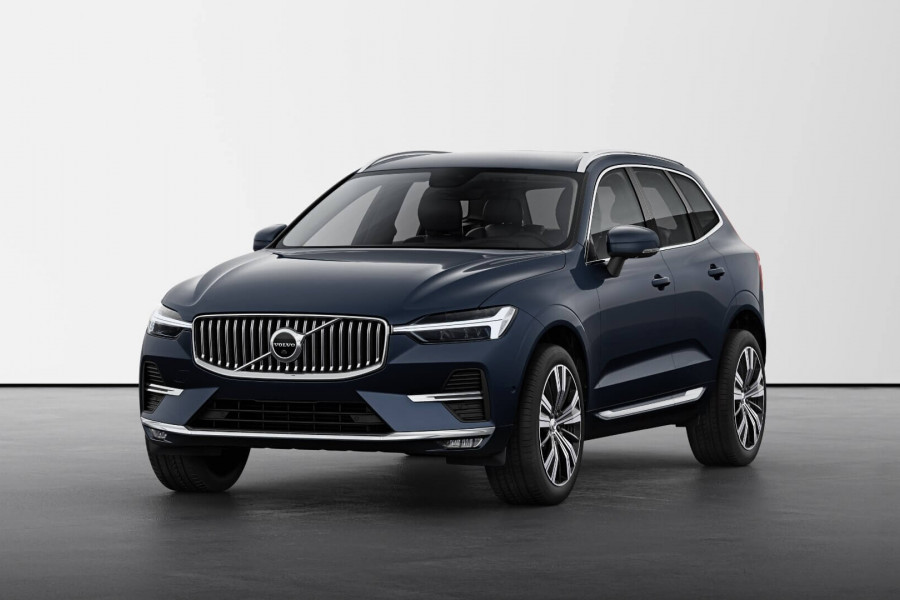 India-spec pricing and styling updates confirmed.
Features include a refreshed diagonally slatted grille, new alloy wheels, smoked tail-lamps, and a larger 11.2-inch touchscreen powered by Snapdragon chipset
Looks set to continue with B5 AWD mild-hybrid setup producing 250 hp and torque converter auto transmission
Mercedes‑AMG CLE 53 Coupe – August 12
India-spec pricing and styling updates confirmed.
Features include a refreshed diagonally slatted grille, new alloy wheels, smoked tail-lamps, and a larger 11.2-inch touchscreen powered by Snapdragon chipset
Looks set to continue with B5 AWD mild-hybrid setup producing 250 hp and torque converter auto transmission
Mercedes‑AMG CLE 53 Coupe – August 12
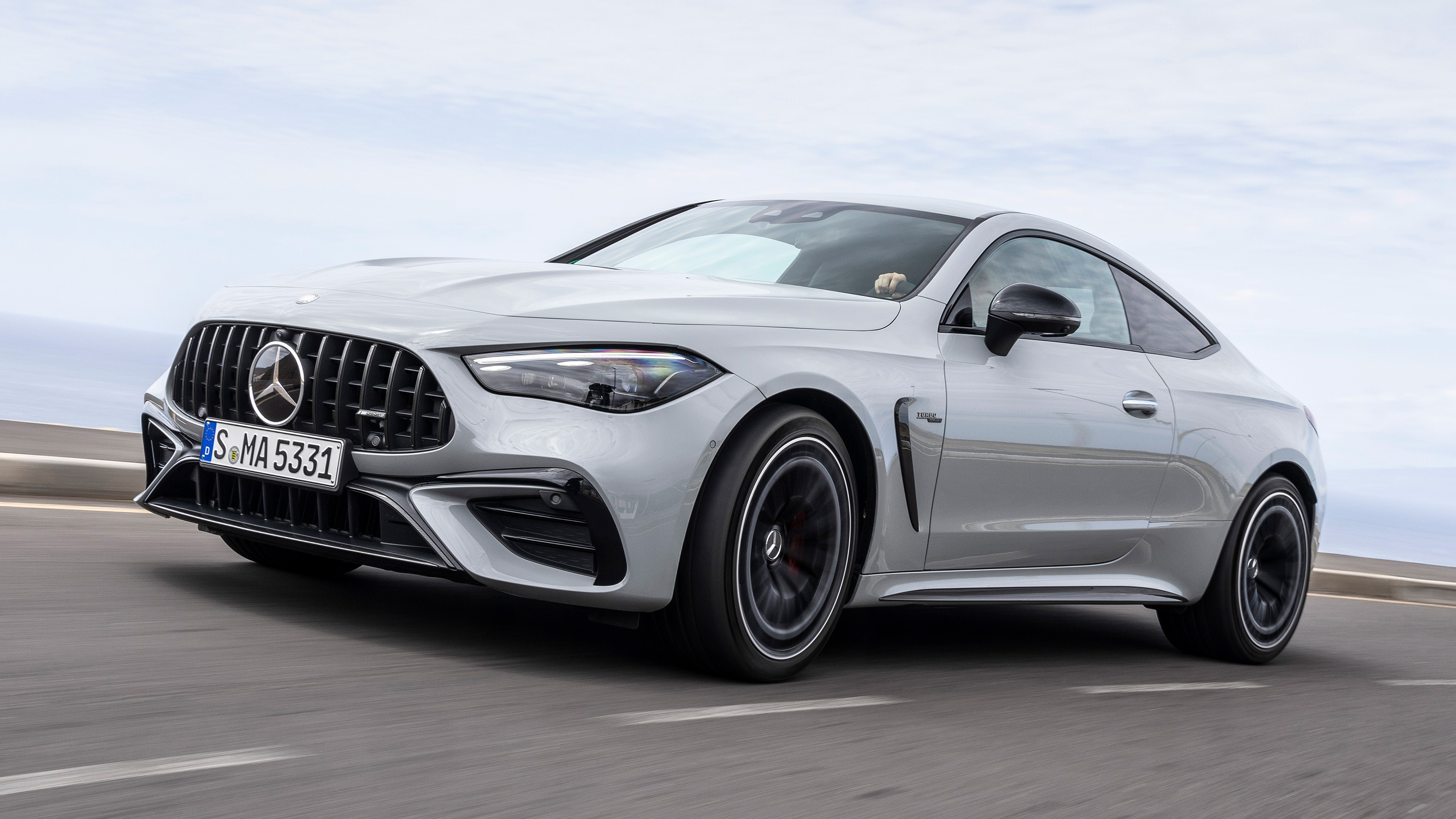 Meridian high-performance styling with Panamericana grille, quad exhausts, and sporty stance.
Luxurious cabin featuring 11.9-inch touchscreen, AMG interiors, Burmester audio, and AMG steering
Powertrain: 449 hp twin-turbo straight‑6 mated to 9-speed DCT—all-wheel drive with a 0‑100 km/h sprint in 4.2 seconds
VinFast VF7 & VF6 (EV SUVs) – Late August
Meridian high-performance styling with Panamericana grille, quad exhausts, and sporty stance.
Luxurious cabin featuring 11.9-inch touchscreen, AMG interiors, Burmester audio, and AMG steering
Powertrain: 449 hp twin-turbo straight‑6 mated to 9-speed DCT—all-wheel drive with a 0‑100 km/h sprint in 4.2 seconds
VinFast VF7 & VF6 (EV SUVs) – Late August
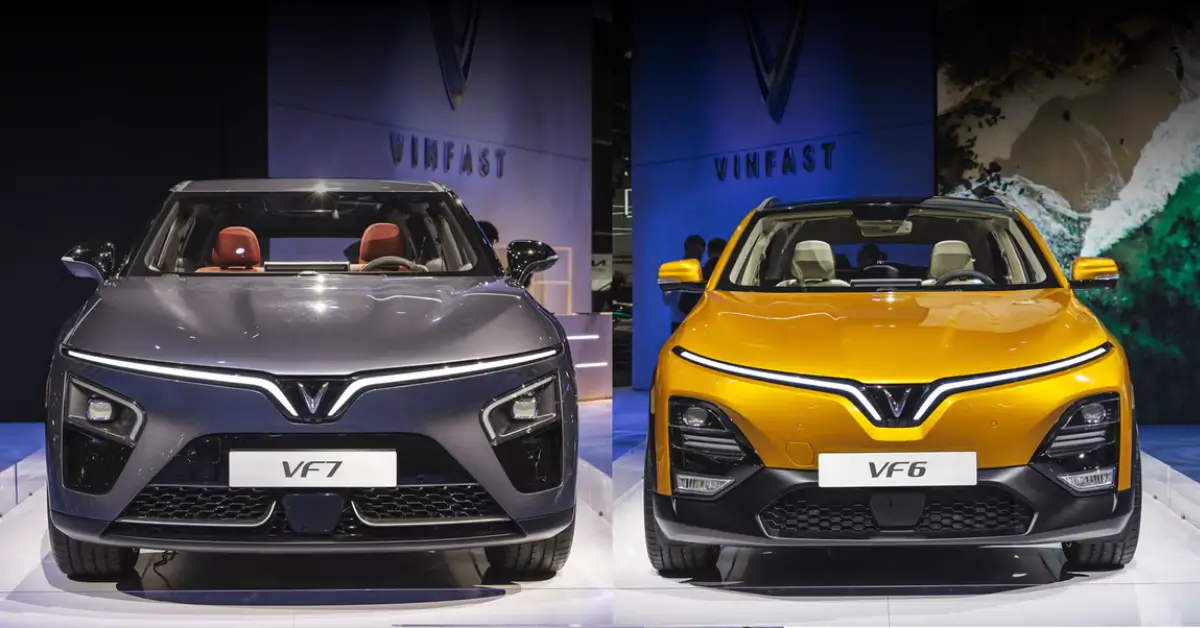 VF7: Flagship electric SUV with 12.9-inch touchscreen, ventilated and reclining seats, Level 2 ADAS, 70.8 kWh LFP battery (450 km WLTP), available in 204 hp FWD and 350 hp AWD trims
VF6: Compact sibling with 59.6 kWh battery (480 km WLTP), single 204 hp front-wheel drive motor, glass roof and ADAS suite
Reveals & Concept Debuts – August 15
Mahindra’s New Compact SUV + Vision Concepts
VF7: Flagship electric SUV with 12.9-inch touchscreen, ventilated and reclining seats, Level 2 ADAS, 70.8 kWh LFP battery (450 km WLTP), available in 204 hp FWD and 350 hp AWD trims
VF6: Compact sibling with 59.6 kWh battery (480 km WLTP), single 204 hp front-wheel drive motor, glass roof and ADAS suite
Reveals & Concept Debuts – August 15
Mahindra’s New Compact SUV + Vision Concepts
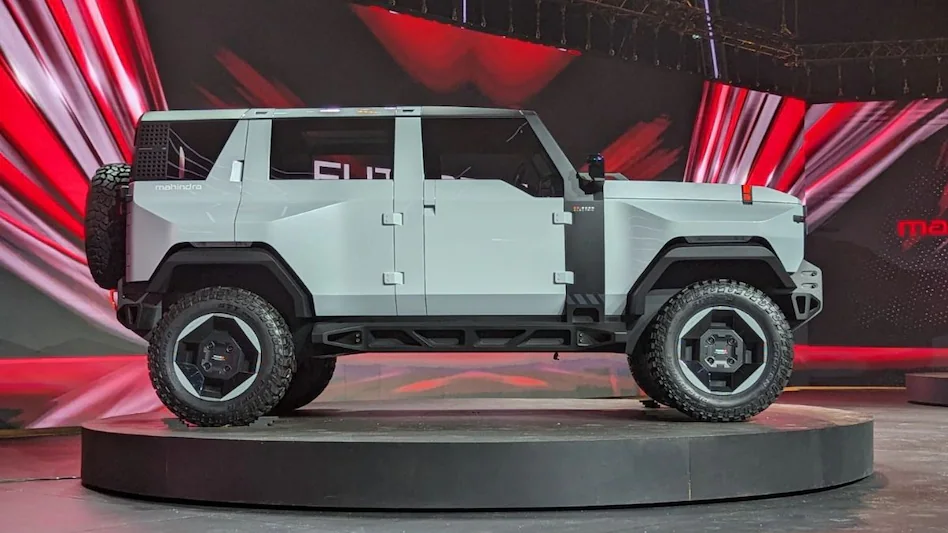 Mahindra will introduce a sub‑4m compact SUV based on its upcoming ‘Nu’ multi-energy platform, supporting ICE, hybrid, and EV powertrains
Additionally, a series of Vision X, T, SXT, and S concept previews will debut, including the rugged Vision SXT pickup likely based on the Scorpio‑N platform
August Releases at a Glance
Mahindra will introduce a sub‑4m compact SUV based on its upcoming ‘Nu’ multi-energy platform, supporting ICE, hybrid, and EV powertrains
Additionally, a series of Vision X, T, SXT, and S concept previews will debut, including the rugged Vision SXT pickup likely based on the Scorpio‑N platform
August Releases at a Glance
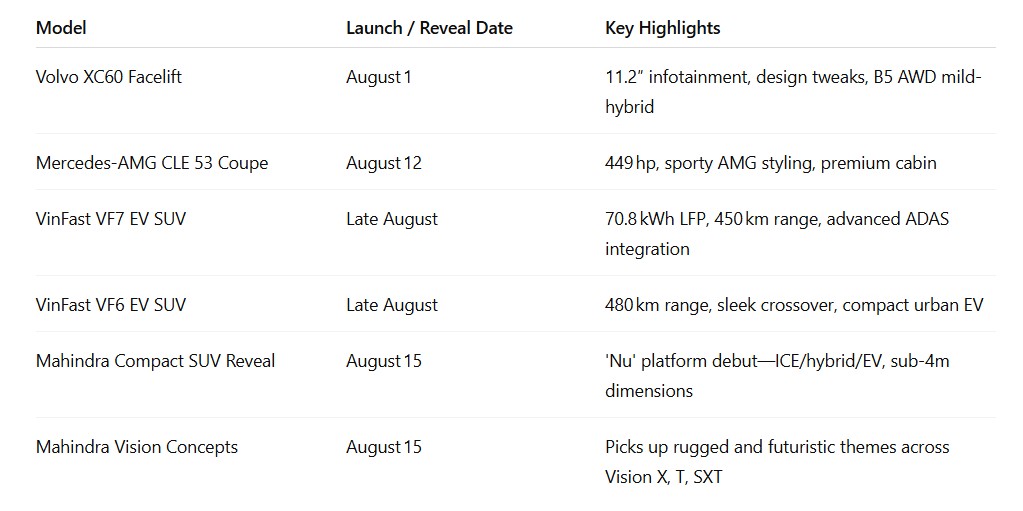 Why This Matters
August 2025 marks a strategic moment in India’s auto landscape:
Established luxury brands like Volvo and Mercedes‑AMG are refreshing their lineups with mid-life facelifts and enhancements.
Electric mobility gains momentum with VinFast's VF6 and VF7 set to make their India debut.
Mahindra enters a new era, unveiling multi-energy platform and concept vehicles that signal its long-term product roadmap.
CarTopNews Final Take
This August brings a potent mixture of premium launches, EV introductions, and innovative platform reveals. From the Volvo XC60 facelift and Mercedes‑AMG CLE to VinFast’s first EVs in India and Mahindra’s futuristic compact models, automotive evolution is accelerating.
Why This Matters
August 2025 marks a strategic moment in India’s auto landscape:
Established luxury brands like Volvo and Mercedes‑AMG are refreshing their lineups with mid-life facelifts and enhancements.
Electric mobility gains momentum with VinFast's VF6 and VF7 set to make their India debut.
Mahindra enters a new era, unveiling multi-energy platform and concept vehicles that signal its long-term product roadmap.
CarTopNews Final Take
This August brings a potent mixture of premium launches, EV introductions, and innovative platform reveals. From the Volvo XC60 facelift and Mercedes‑AMG CLE to VinFast’s first EVs in India and Mahindra’s futuristic compact models, automotive evolution is accelerating.
Stay tuned to CarTopNews for hands-on reviews, booking updates, pricing details, and what these launches mean for the rapidly evolving Indian car market.

Kinetic DX Electric Scooter Marks Retro Return — Launch in India at ₹1.11 Lakh
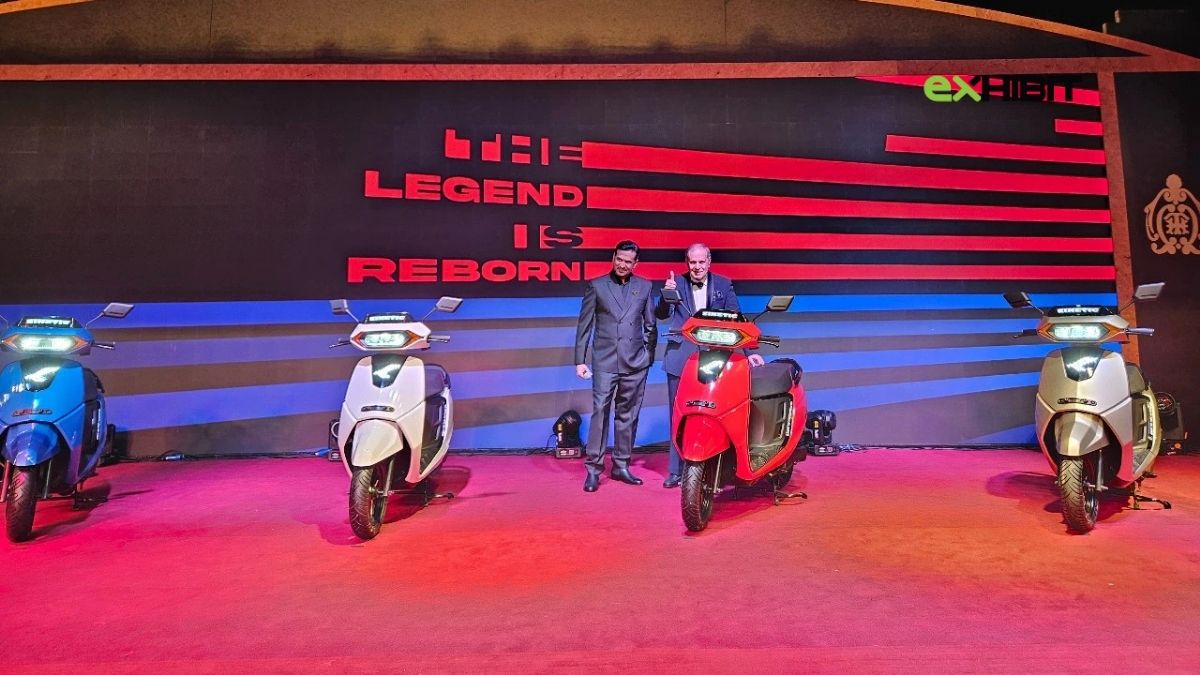 Kinetic’s famous DX scooter is revived as the electric Kinetic DX EV, launched in India at ₹1,11,499 (ex-showroom) for the base DX variant, while the DX+ costs ₹1,17,499, as bookings begin ahead of deliveries starting September 2025
This launch comes under Kinetic’s EV arm, Watts & Volts, signaling the brand's re-entry into India’s two-wheeler segment with a mix of nostalgia and modern EV tech
Retro-Modern Design & Brand Legacy
The Kinetic DX EV pays homage to the classic 1980s Kinetic Honda DX with a boxy silhouette, illuminated Kinetic logo on the flyscreen, hexagonal LED headlamp, and arrow-shaped turn indicators
Key styling features:
All‑metal body panels (rare in this segment)
Chunky 12-inch alloy wheels
Full LED lighting with signature LED DRLs
Display reminiscent of original cluster, extended “READY” red start button
Battery, Range & Performance
Kinetic’s famous DX scooter is revived as the electric Kinetic DX EV, launched in India at ₹1,11,499 (ex-showroom) for the base DX variant, while the DX+ costs ₹1,17,499, as bookings begin ahead of deliveries starting September 2025
This launch comes under Kinetic’s EV arm, Watts & Volts, signaling the brand's re-entry into India’s two-wheeler segment with a mix of nostalgia and modern EV tech
Retro-Modern Design & Brand Legacy
The Kinetic DX EV pays homage to the classic 1980s Kinetic Honda DX with a boxy silhouette, illuminated Kinetic logo on the flyscreen, hexagonal LED headlamp, and arrow-shaped turn indicators
Key styling features:
All‑metal body panels (rare in this segment)
Chunky 12-inch alloy wheels
Full LED lighting with signature LED DRLs
Display reminiscent of original cluster, extended “READY” red start button
Battery, Range & Performance
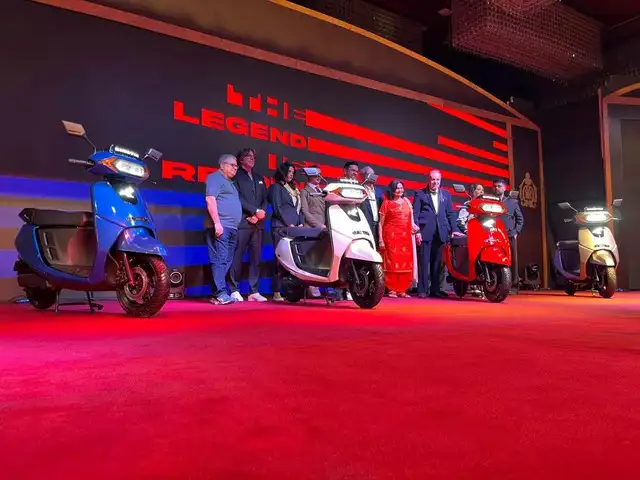 Under the floor-mounted 2.6 kWh LFP battery paired with a 4.8 kW hub-mounted BLDC motor, the scooter offers:
Range: 102 km (DX) and 116 km (DX+) under IDC tests
Top speed: 80 km/h (DX), 90 km/h (DX+)
Extended real-world range claimed up to 150 km with cruise-lock in 25‑30 km/h range
Charging times:
0–50% in ~2 hours
0–80% in ~3 hours
Full charge in ~4 hours via integrated Easy Charge system
Features & Convenience
Both variants offer:
8.8″ colour LCD instrument console with Bluetooth audio and voice nav
Cruise control, hill hold assist, reverse gear
Three riding modes: Range, Power, Turbo
Keyless Easy Key system with passcode and built‑in speaker
DX+ Variant: Connected Features
Under the floor-mounted 2.6 kWh LFP battery paired with a 4.8 kW hub-mounted BLDC motor, the scooter offers:
Range: 102 km (DX) and 116 km (DX+) under IDC tests
Top speed: 80 km/h (DX), 90 km/h (DX+)
Extended real-world range claimed up to 150 km with cruise-lock in 25‑30 km/h range
Charging times:
0–50% in ~2 hours
0–80% in ~3 hours
Full charge in ~4 hours via integrated Easy Charge system
Features & Convenience
Both variants offer:
8.8″ colour LCD instrument console with Bluetooth audio and voice nav
Cruise control, hill hold assist, reverse gear
Three riding modes: Range, Power, Turbo
Keyless Easy Key system with passcode and built‑in speaker
DX+ Variant: Connected Features
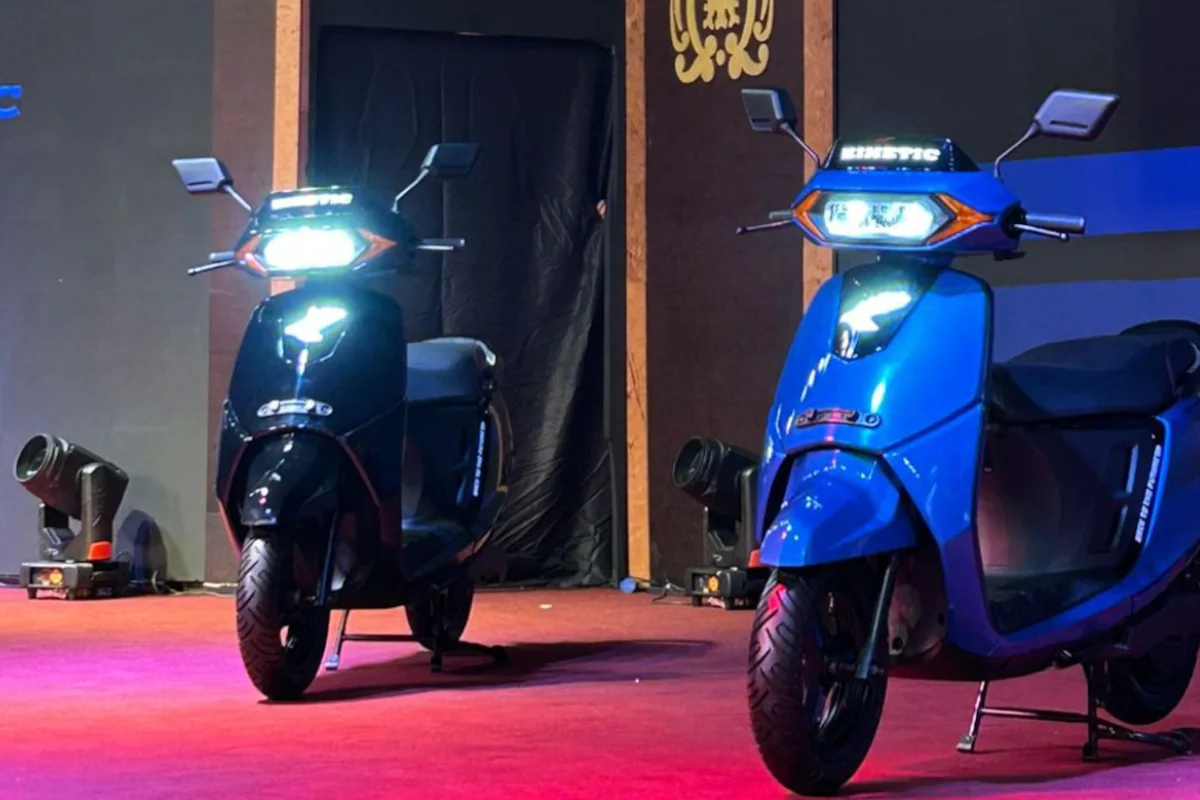 The DX+ variant includes Telekinetic telematics suite offering:
Geo-fencing, vehicle tracking, anti-theft alerts
Remote diagnostics, OTA updates, guide-me-home lights, vehicle analytics
Birthday greeting in 16 languages (!) — a quirky feature
Warranty & Availability
Standard warranty: 3 years or 30,000 km
Extended warranty up to 9 years or 1,00,000 km available
Bookings: Open online with ₹1,000 token; limited to 35,000–40,000 units initially
Deliveries expected: September 2025, starting with Pune
Competitors: Segment Context
The Kinetic DX EV is set to compete with:
TVS iQube (~₹94 k to ₹1.31 lakhs; 100 km range, 78 km/h top speed)
Bajaj Chetak, Vida VX2, Ather Rizta, Ola S1 Pro — competing in similar price-performance brackets with advanced features and connected tech
Strategic Outlook
Kinetic aims for aggressive growth:
Initial target: 1.5 lakh units in 3–4 years
Plan to scale to 300 dealerships across India; focusing on western and northern states first
Targeting a 6–8% market share in the entry-level EV scooter segment
Production ramp up: ~40,000 units by August 2026 backed by ₹177 crore investment
Final Take
The Kinetic DX EV blends legacy branding with modern EV features and competitive pricing. With a strong metal build, generous range, practical underseat storage, and tech-savvy variants, it aims to carve a niche in the crowded urban scooter market. Keep an eye out—this retro reboot might just surprise the segment leaders.
The DX+ variant includes Telekinetic telematics suite offering:
Geo-fencing, vehicle tracking, anti-theft alerts
Remote diagnostics, OTA updates, guide-me-home lights, vehicle analytics
Birthday greeting in 16 languages (!) — a quirky feature
Warranty & Availability
Standard warranty: 3 years or 30,000 km
Extended warranty up to 9 years or 1,00,000 km available
Bookings: Open online with ₹1,000 token; limited to 35,000–40,000 units initially
Deliveries expected: September 2025, starting with Pune
Competitors: Segment Context
The Kinetic DX EV is set to compete with:
TVS iQube (~₹94 k to ₹1.31 lakhs; 100 km range, 78 km/h top speed)
Bajaj Chetak, Vida VX2, Ather Rizta, Ola S1 Pro — competing in similar price-performance brackets with advanced features and connected tech
Strategic Outlook
Kinetic aims for aggressive growth:
Initial target: 1.5 lakh units in 3–4 years
Plan to scale to 300 dealerships across India; focusing on western and northern states first
Targeting a 6–8% market share in the entry-level EV scooter segment
Production ramp up: ~40,000 units by August 2026 backed by ₹177 crore investment
Final Take
The Kinetic DX EV blends legacy branding with modern EV features and competitive pricing. With a strong metal build, generous range, practical underseat storage, and tech-savvy variants, it aims to carve a niche in the crowded urban scooter market. Keep an eye out—this retro reboot might just surprise the segment leaders.

Ather Energy Narrows Gap With Ola Electric — Rizta Leads the Charge
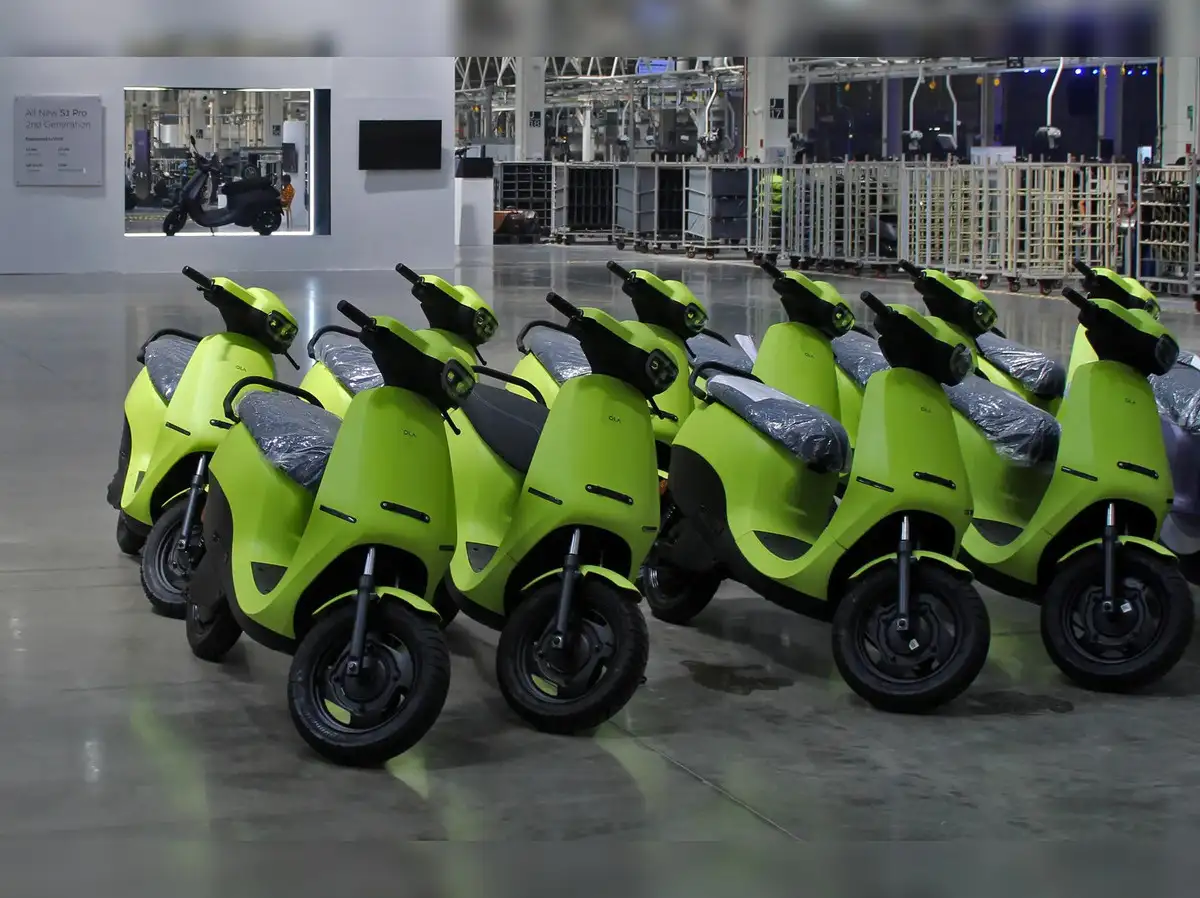 In a stunning performance for July 2025, Ather Energy is closing in fast on Ola Electric, with just 526 units separating them. As of July 27, Ola sold approximately 13,712 units (17.2% share), while Ather sold 13,187 units, representing 16.5% of the Indian electric two‑wheeler market
Rizta Powers Ather’s Surge
The Ather Rizta scooter, introduced in April 2024, now contributes nearly 60% of Ather’s total sales volumes and has exceeded 100,000 units sold within a year
Rizta has expanded Ather’s user base across new customer segments and geographies, with an affordable price band of ₹99,999 to ₹1,14,500
Retail Reach & Strategic Edge
Ather has scaled its footprint to 351 centers across India as of March 2025, with plans to reach 700 by FY26 year-end
This expansion supports strong retail penetration beyond traditional metro hubs, fueling its sales momentum.
Supply Headwinds: Ola Slows, Industry Affected
Ola Electric’s shift toward profitability over volume growth has come at the cost of declining market share: down from 19.9% in June to 17.2% by late July
A broader industry slowdown—caused by rare earth magnet export curbs from China—has affected all players, including Ola, Ather, TVS Motor, and Bajaj Auto, triggering a 21.6% drop in EV scooter registrations in July vs. June
Ola’s April–June quarter saw a net loss widen to ₹428 crore on ₹828 crore revenue, down from ₹347 crore a year earlier, as it tightens operations to improve margins
Unlike Ola, Ather has managed to buffer the impact via effective inventory management across its manufacturing units and dealerships
Comparative Snapshot: Ola vs Ather (July 2025)
In a stunning performance for July 2025, Ather Energy is closing in fast on Ola Electric, with just 526 units separating them. As of July 27, Ola sold approximately 13,712 units (17.2% share), while Ather sold 13,187 units, representing 16.5% of the Indian electric two‑wheeler market
Rizta Powers Ather’s Surge
The Ather Rizta scooter, introduced in April 2024, now contributes nearly 60% of Ather’s total sales volumes and has exceeded 100,000 units sold within a year
Rizta has expanded Ather’s user base across new customer segments and geographies, with an affordable price band of ₹99,999 to ₹1,14,500
Retail Reach & Strategic Edge
Ather has scaled its footprint to 351 centers across India as of March 2025, with plans to reach 700 by FY26 year-end
This expansion supports strong retail penetration beyond traditional metro hubs, fueling its sales momentum.
Supply Headwinds: Ola Slows, Industry Affected
Ola Electric’s shift toward profitability over volume growth has come at the cost of declining market share: down from 19.9% in June to 17.2% by late July
A broader industry slowdown—caused by rare earth magnet export curbs from China—has affected all players, including Ola, Ather, TVS Motor, and Bajaj Auto, triggering a 21.6% drop in EV scooter registrations in July vs. June
Ola’s April–June quarter saw a net loss widen to ₹428 crore on ₹828 crore revenue, down from ₹347 crore a year earlier, as it tightens operations to improve margins
Unlike Ola, Ather has managed to buffer the impact via effective inventory management across its manufacturing units and dealerships
Comparative Snapshot: Ola vs Ather (July 2025)
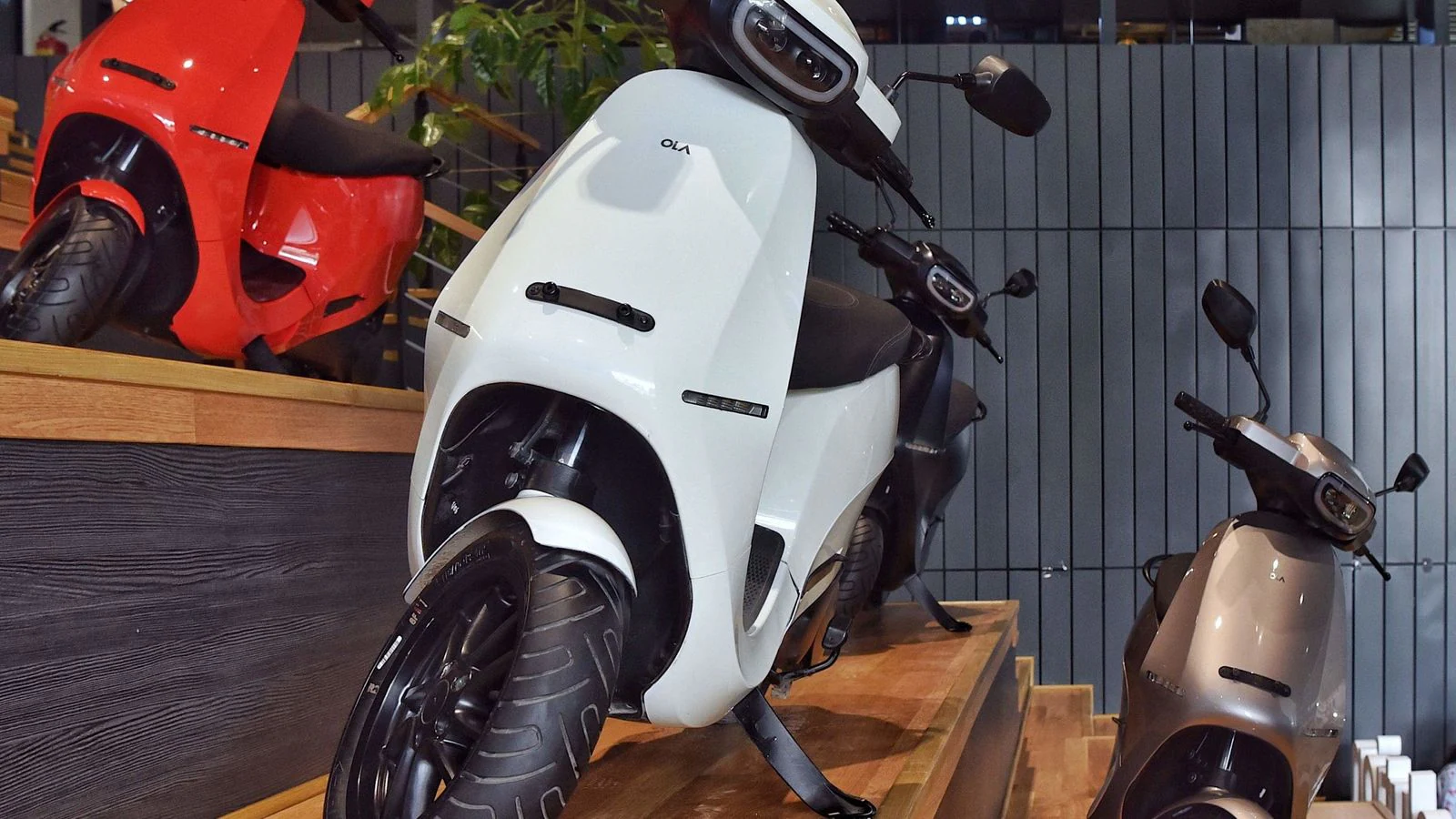
 Despite trailing by just 526 units, Ather's traction represents a marked shift from June, when Ola led by over 5,000 units
What Lies Ahead
Ather's IPO-listed status and reduced losses (₹2.34 billion in Q4) reflect improving financial health, supported by Rizta demand and geographic expansion
Ola Electric, meanwhile, is facing mounting pressure: slide to third place behind legacy players TVS and Bajaj Auto, regulatory scrutiny, and concerns over service and quality issues amid product delays like the Roadster X+
Ongoing disruption in magnet supply chains could further realign competitive positions, enhancing opportunities for agile players like Ather.
Final Thoughts
With a robust product like Rizta and an aggressive expansion roadmap, Ather Energy is right on the heels of Ola Electric in July 2025—a sign that the landscape of India’s EV two-wheeler market is rapidly shifting. Stay tuned to CarTopNews as we track continued changes in sales ranks, model launches, pricing strategies, and regulation-driven trends.
Despite trailing by just 526 units, Ather's traction represents a marked shift from June, when Ola led by over 5,000 units
What Lies Ahead
Ather's IPO-listed status and reduced losses (₹2.34 billion in Q4) reflect improving financial health, supported by Rizta demand and geographic expansion
Ola Electric, meanwhile, is facing mounting pressure: slide to third place behind legacy players TVS and Bajaj Auto, regulatory scrutiny, and concerns over service and quality issues amid product delays like the Roadster X+
Ongoing disruption in magnet supply chains could further realign competitive positions, enhancing opportunities for agile players like Ather.
Final Thoughts
With a robust product like Rizta and an aggressive expansion roadmap, Ather Energy is right on the heels of Ola Electric in July 2025—a sign that the landscape of India’s EV two-wheeler market is rapidly shifting. Stay tuned to CarTopNews as we track continued changes in sales ranks, model launches, pricing strategies, and regulation-driven trends.